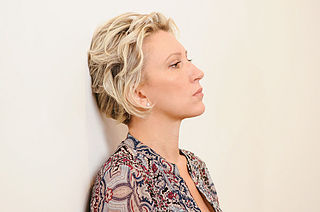A Quote by Plutarch
Grief is natural; the absence of all feeling is undesirable, but moderation in grief should be observed, as in the face of all good or evil.
Related Quotes
All those years I fell for the great palace lie that grief should be gotten over as quickly as possible and as privately. But, what I've discovered is that the lifelong fear of grief keeps us in a barren, isolated place, and that only grieving can heal grief. The passage of time will lessen the acuteness, but time alone, without the direct experience of grief, will not heal it.
New grief, when it came, you could feel filling the air. It took up all the room there was. The place itself, the whole place, became a reminder of the absence of the hurt or the dead or the missing one. I don't believe that grief passes away. It has its time and place forever. More time is added to it; it becomes a story within a story. But grief and griever alike endure.
Grief is neither a disorder nor a healing process; it is a sign of health itself, a whole and natural gesture of love. Nor must we see grief as a step toward something better. No matter how much it hurts-and it may be the greatest pain in life-grief can be an end in itself, a pure expression of love.
I began to know my story then. Like everybody's, it was going to be the story of living in the absence of the dead. What is the thread that holds it all together? Grief, I thought for a while. And grief is there sure enough, just about all the way through. From the time I was a girl I have never been far from it. But grief is not a force and has no power to hold. You only bear it. Love is what carries you, for it is always there, even in the dark, or most in the dark, but shining out at times like gold stitches in a piece of embroidery.








































